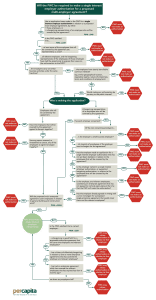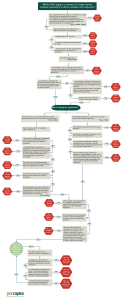Attaining bipartisan approval on reforms to Australia’s industrial relations system has proved a colossal feat, marred by a tortuous parliamentary history. The passage of the Conciliation and Arbitration Act, which established Australia’s first industrial relations system, was a great destroyer of governments. The bill took three years to make its way through parliament, precipitated the fall of three federal governments, and the resignation of four Prime Ministers, all in the first four years of Australian federation. Since then, it has been consistently centred as a major policy issue during federal election cycles.
Thus, it is no great surprise that the Labor Government’s Fair Work Legislation Amendment Bill has dominated the media cycle since before it was even introduced to parliament. Unfortunately, this has obscured the truth of these reforms: that they are not radical. They are a reasonable, if not conservative, approach to lifting more workers off safety net awards and the minimum wage, whilst ensuring that firm-level enterprise bargaining retains its primacy in our modern industrial relations system.
The successful passage of this bill will not occasion the collapse of Australian industry, or our economy, nor will we witness an explosion in multi-employer bargaining agreements being struck. It is incontestable that the purpose of multi-employer bargaining reform, exists only to mitigate complications in the main enterprise agreement making stream. A system which has proved impenetrable for many Australian businesses and workers. Fewer than 3% of small businesses have an enterprise agreement in place, and just over a third of Australian workers have their pay set by one (more than half of which have passed their expiry date).
Over the last five years, the Fair Work Commission has made fewer than 50 single interest employer authorisations. These reforms specifically address the hurdles businesses and workers face when making workplace specific agreements, agreements which recognise the flexibility our modern workplaces require.
However, the path to reaching single interest employer agreements is by no means easy. It will require authorisation from the Fair Work Commission, who must be satisfied of a lengthy list of requirements and preconditions. Yes, it will address some of the innate imbalance in bargaining power between workers and their employers, but this is in light of a system already heavily tilted in favour of employers.
Compelling common interest employers to be named in an authorisation requires additional preconditions. Certain industries and business types are non-compellable, as are employers who either currently have an enterprise agreement in place, or have agreed to bargain for one. Every step of the way the Commission is in control.
Importantly, Commissioners must be satisfied that an authorisation or variation would not be contrary to the public interest. This requires them to take into account the objects of the Fair Work Act:
- providing workplace relations laws that are fair to working Australians, are flexible for businesses, and promote productivity and economic growth for Australia’s future economic prosperity;
- emphasising enterprise level collective bargaining; and
- acknowledging the special circumstances of small and medium sized businesses.
Further, the Commission can refuse to make an authorisation where there is proof that the employer in question has a history of successfully bargaining, even if their last agreement has expired.
These flow charts illustrate the difficulty workers, and businesses, will face even when there is consent in their application to the Commission, both when obtaining an authorisation to commence bargaining, and when adding another workplace to an existing agreement.
Our system has always required unions to function properly, but with coverage of less than 15% of Australian workers, it is hard to imagine that this reform will elicit an explosion in multi-employer agreement making. In any case, unionised workplaces will be unable to utilise these provisions, with the Act’s emphasis still firmly on single enterprise agreements.
A system in which employers can be compelled to bargain by the majority support of workers has always been allowed under the Fair Work Act. These reforms might supplement our single enterprise bargaining system but will by no means replace it. Obtaining approval of authorisations of, or variations to, single interest employer agreements will be no easy feat.
Sarah McKenzie
Research Associate
Centre for New Industry at Per Capita
NOTE: Flowcharts reflect the Bill as at 25 November, 2022



